|
By Jack Stewart We don’t know exactly when this was painted, only that soon the little clearing will be empty, the billowing trees casting shade over the shallows. The sky does not dream of soldiers. Calm water does not believe in footprints. The town—is it big enough to be a city?—is almost a smudge in the background. In an hour, the two men fishing will haul in their net, their catch as silver as an angel’s wing. Right now, the family about to pack their few belongings is sheltered in enough green they cannot imagine the brown vastness of their future, the millennia of their story. And all we know is soon a fugitive god will have disappeared, leaving behind a little sun mixed with shade, a few drowsy birds, and the scent of quiet water. Jack Stewart was educated at the University of Alabama and Emory University and was a Brittain Fellow at The Georgia Institute of Technology. His first book, No Reason, was published by the Poeima Poetry Series in 2020, and his work has appeared in numerous journals and anthologies, including Poetry, The American Literary Review, Nimrod, Image and others.
Jack's other work on Foreshadow: The Return (Poetry, September 2023) Camel and Needle (Poetry, October 2023) Rest on the Flight into Egypt (1) (Poetry, January 2024)
0 Comments
Faithful Cross the Saints rely on, Noble tree beyond compare! Never was there such a scion, Never leaf or flower so rare. Sweet the timber, sweet the iron, Sweet the burden that they bear! Sing, my tongue, in exultation Of our banner and device! Make a solemn proclamation Of a triumph and its price: How the Saviour of creation Conquered by his sacrifice! For, when Adam first offended, Eating that forbidden fruit, Not all hopes of glory ended With the serpent at the root: Broken nature would be mended By a second tree and shoot. Thus the tempter was outwitted By a wisdom deeper still: Remedy and ailment fitted, Means to cure and means to kill; That the world might be acquitted, Christ would do his Father's will. So the Father, out of pity For our self-inflicted doom, Sent him from the heavenly city When the holy time had come: He, the Son and the Almighty, Took our flesh in Mary's womb. Hear a tiny baby crying, Founder of the seas and strands; See his virgin Mother tying Cloth around his feet and hands; Find him in a manger lying Tightly wrapped in swaddling-bands! So he came, the long-expected, Not in glory, not to reign; Only born to be rejected, Choosing hunger, toil and pain, Till the scaffold was erected And the Paschal Lamb was slain. No disgrace was too abhorrent: Nailed and mocked and parched he died; Blood and water, double warrant, Issue from his wounded side, Washing in a mighty torrent Earth and stars and ocean-tide. Lofty timber, smooth your roughness, Flex your boughs for blossoming; Let your fibres lose their toughness, Gently let your tendrils cling; Lay aside your native gruffness, Clasp the body of your King! Noblest tree of all created, Richly jewelled and embossed: Post by Lamb's blood consecrated; Spar that saves the tempest-tossed; Scaffold-beam which, elevated, Carries what the world has cost! Wisdom, power, and adoration To the blessed Trinity For redemption and salvation Through the Paschal Mystery, Now, in every generation, And for all eternity. Amen. Crux Fidelis is an ancient Christian hymn written by Venantius Honorius Clementianus Fortunatus.
When the holy Abba Anthony lived in the desert he was beset by accidie, and attacked by many sinful thoughts. He said to God, 'Lord, I want to be saved but these thoughts do not leave me alone; what shall I do in my affliction? How can I be saved?' A short while afterwards, when he got up to go out, Anthony saw a man like himself sitting at his work, getting up from his work to pray, then sitting down and plaiting a rope, then getting up again to pray. It was an angel of the Lord sent to correct and reassure him. He heard the angel saying to him, 'Do this and you will be saved.' At these words, Anthony was filled with joy and courage. He did this, and he was saved. *** Someone asked the same Abba Anthony, 'What must one do in order to please God?' The old man replied, 'Pay attention to what I tell you: whoever you may be, always have God before your eyes; whatever you do, do it according to the testimony of the holy scriptures; in whatever place you live, do not easily leave it. Keep these three precepts and you will be saved.' *** Abba Pambo asked Abba Anthony, 'What ought I to do?' and the old man said to him, 'Do not trust in your own righteousness, do not worry about the past, but control your tongue and your stomach.' *** Abba Anthony said, 'I saw the snares that the enemy spreads out over the world and I said groaning, 'What can get through from such snares?' Then I heard a voice saying to me, 'Humility'. *** He also said, 'Our life and our death is with our neighbour. If we gain our brother, we have gained God, but if we scandalise our brother, we have sinned against Christ.' *** A hunter in the desert saw Abba Anthony enjoying himself with the brethren and he was shocked. Wanting to show him that it was necessary sometimes to meet the needs of the brethren, the old man said to him, 'Put an arrow in your bow and shoot it.' So he did. The old man then said, 'Shoot another', and he did so. Then the old man said, 'Shoot yet again', and the hunter replied 'If I bend my bow so much I will break it.' Then the old man said to him, 'It is the same with the work of God. If we stretch the brethren beyond measure they will soon break. Sometimes it is necessary to come down to meet their needs.' When he heard these words the hunter was pierced by compunction and, greatly edified by the old man, he went away. As for the brethren, they went home strengthened. *** It was revealed to Abba Anthony in his desert that there was one who was his equal in the city. He was a doctor by profession and whatever he had beyond his needs he gave to the poor, and every day he sang the Sanctus with the angels. *** Abba Anthony said, 'Whoever hammers a lump of iron, first decides what he is going to make of it, a scythe, a sword, or an axe. Even so we ought to make up our minds what kind of virtue we want to forge or we labour in vain.' From The Sayings of the Desert Fathers (trans. by Benedicta Ward, SLG).
Please support us by sharing this post or buying us a book. By Alan Altany Yet it was our infirmities that he bore, our sufferings that he endured, While we thought of him as stricken, as one smitten by God and afflicted. Isaiah 53:4 In the chapel of the monastery’s hospital, the pure stench of boiling & erupting skin, going black gangrenous by the moment, rose up with a cacophony of suffered moans from the peasant patients grimly enduring St. Anthony’s fire, leprosy and plague as the monks cared for them and brought their brutally fouled bodies and afflicted souls before the painted Christ altarpiece, before the magnificent ugliness of a crucified Jesus who mirrored and consumed their own wounds, compelling their death-draining eyes towards this tortured, contorted figure perfectly abandoned, perfectly and savagely killed in frozen writhing: common people with commonly searing pustules, seizures, crunching spasms and hallucinations facing this night-drenched painting, this Christ. Grunewald painted in the hospital for years, daily seeing the stricken- down in their fatally drenched beds, stretching faith beyond breaking. His Christ: greyish–green flesh, gaping mouth, grave-blue lips, screaming hands, legions of sores heavy with death, a dead Jesus. This God of excess died like no other in dreadful beauty & unrestrained love, unrestricted, eternal empathy for His sin-corpsed, absurd humans, God now knowing their desolation and the terminal loneliness of their pain. Mother Mary, right of Jesus on the panel, collapses in John’s arms next to Mary Magdalene praying, begging; a decreasing John the Baptist to the left points fiercely to Jesus to increase. The whole chapel is a visceral scene gravitating everyone towards a gruesome, hideous Christ: eyes shut, head awfully dropped; a 16th-century painting intending miracles of body and faith by the execution of infinite compassion. Patients sense a mystical transfiguration of their poor dyings into acts of worship to the God who knew them with a mothering intimacy, seeing He sought them more deeply than their abysses, so deeply that hope found a way out of hell into hearts bowing before the infinite sacrifice of God, where He agonized in love for them and died so that they could finally become soulful fire ascending to be with the risen Christ in their new spirited-skin bodies. Jesus’s darkest night ever of any soul: a high point of art marked by the healing of tormented hearts of pushed down-and-out believers through a polyptych painting by a man whose name was not even Grunewald, but who had been touched by the reflected heat of St. Anthony’s fire and by the God of miracle-making who envisioned the painted panel itself into a miracle of a dramatically hidden resurrection, healing through immersion in death. Alan Altany, Ph.D., is a septuagenarian college professor of religious studies. He’s been a factory worker, swineherd on a farm, hotel clerk, lawn maintenance worker, small magazine of poetry editor, director of religious education for churches, truck driver, novelist, etc. He published a book of poetry in 2022 entitled A Beautiful Absurdity: Christian Poetry of the Sacred. His website is at https://www.alanaltany.com/.
'Grunewald's Crucifixion' first appeared in A Beautiful Absurdity: Christian Poetry of the Sacred. It has been republished here with the author's permission. Related work on Foreshadow: The Crucifixion of St Peter (Fiction, August 2022) Please support us by sharing this post and buying us a book. By Phyllis Green From the artist: You can turn away from God, but if you just slightly turn his way, he is there smiling down at you because his love and care are permanent. Phyllis Green is an author, playwright and artist. Her paintings can be found at ArLiJo 123, Earth and Altar, Gulf Stream Magazine, Novus, New Plains Review, CERASUS and other publications.
Phyllis' other work on Foreshadow: Jesus on the Cross (Art, April 2022) Support us by sharing this post or buying us a book. By Phyllis Green I've been a writer most of my life, but five years ago, I began to tell stories with paint and canvas. This is an early painting. I remembered back in Sunday School when I was a child, there were pictures of Jesus on the cross with several women praying near him. So I simply painted my memory. Phyllis Green is an author, playwright, and artist. Her paintings can be found at ArLiJo 123, Earth and Altar, Gulf Stream Magazine, Novus, New Plains Review, CERASUS, and soon in CALYX, Aji, Club Plum, Third Wednesday, I 70 Review, and Cinematic Codes Review.
By Matthew J. Andrews Jonah Cast into the Sea by James Patrick Reid. Used with the artist's permission. After clicking 'Play', please wait a few moments for the poem to load. (after James Patrick Reid’s Jonah) Of course I doubted him: crazed man of dust blown in by the wind, waterlogged eyes, salt baked onto his skin, demanding penance in the name of a god foreign to my ears, telling stories dripping wet with madness. But he took my hand with surprising strength and guided my fingers down the length of his arm, to the wounds riddling him like pockmarks, those places where the grave’s teeth tore into the skin, and to the patches burned with the corrosive splash of sheol’s stomach, and as I imagined the pain his god had made him endure, he drew my eyes up to his and asked me: do you now believe? Matthew J. Andrews is a private investigator and writer from California. He is the author of the chapbook I Close My Eyes and I Almost Remember, and his work has appeared in Relief, Rust + Moth, Pithead Chapel and EcoTheo Review, among others. He can be contacted at matthewjandrews.com. James Patrick Reid is an artist and theologian. His website is sacredpaintings.org. Related work on Foreshadow:
- Foreword: The Sign of Jonah (Editorial by Josh Seligman, January 2022) - God Who Sent the Dove Sends the Hawk (Poetry by Susan Yanos, January 2021) 'A Better Resurrection' by Christina Rossetti I have no wit, no words, no tears; My heart within me like a stone Is numbed too much for hopes or fears; Look right, look left, I dwell alone; I lift mine eyes, but dimmed with grief No everlasting hills I see; My life is in the falling leaf O Jesus, quicken me. My life is like a faded leaf, My harvest dwindled to a husk; Truly my life is void and brief And tedious in the barren dusk; My life is like a frozen thing, No bud nor greenness can I see: Yet rise it shall--the sap of Spring; O Jesus, rise in me. My life is like a broken bowl, A broken bowl that cannot hold One drop of water for my soul Or cordial in the searching cold; Cast in the fire the perished thing, Melt and remould it, till it be A royal cup for him my King: O Jesus, drink of me. Christina Rossetti (1830–1894) was an English poet.
Paula Modersohn-Becker (1876–1907) was a German expressionist painter. 'Wholeness' by Alexander Pope What if the foot, ordained the dust to tread, Or hand, to toil, aspired to be the head? What if the head, the eye, or ear repined To serve mere engines to the ruling mind? Just as absurd for any part to claim To be another, in this general frame; Just as absurd, to mourn the tasks or pains The great Directing Mind of all ordains. All are but parts of one stupendous whole, Whose body Nature is, and God the soul; That, changed through all, and yet in all the same; Great is the earth, as in the ethereal frame; Warms in the sun, refreshes in the breeze, Glows in the stars, and blossoms in the trees; Lives through all life, extends through all extent; Spreads undivided, operates unspent! Breathes in our soul, informs our mortal part, As full, as perfect, in a hair as heart; As full, as perfect in vile man that mourns, As the rapt seraph that adores and burns; To him no high, no low, no great, no small; He fills, he bounds, connects, and equals all. Oscar-Claude Monet (1840–1926) was a French impressionist painter.
Alexander Pope (1688–1744) was an English poet. 'Annunciation' by John Donne Salvation to all that will is nigh; That All, which always is all everywhere, Which cannot sin, and yet all sins must bear, Which cannot die, yet cannot choose but die, Lo! faithful Virgin, yields Himself to lie In prison, in thy womb; and though He there Can take no sin, nor thou give, yet He'll wear, Taken from thence, flesh, which death's force may try. Ere by the spheres time was created thou Wast in His mind, who is thy Son, and Brother; Whom thou conceivest, conceived; yea, thou art now Thy Maker's maker, and thy Father's mother, Thou hast light in dark, and shutt'st in little room Immensity, cloister'd in thy dear womb. Henry Ossawa Tanner (1859–1937) was an American artist.
John Donne (1572–1631) was an English poet and an Anglican priest. |
Categories
All
ForecastSupport UsArchives
July 2024
|
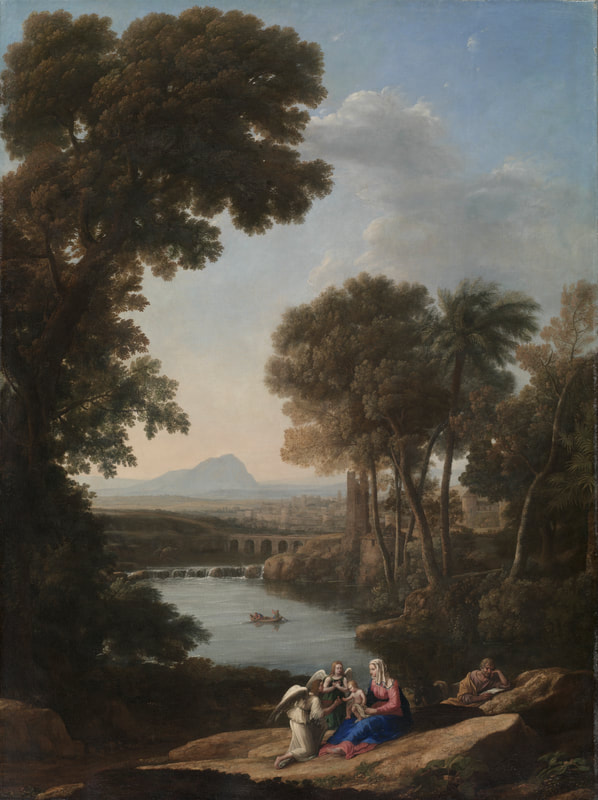
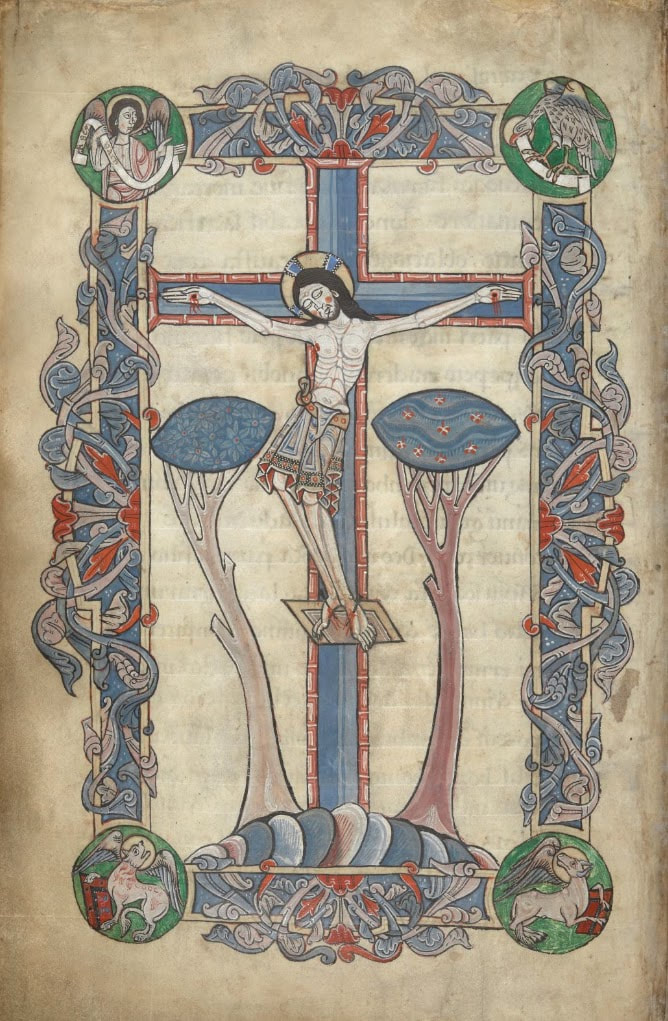
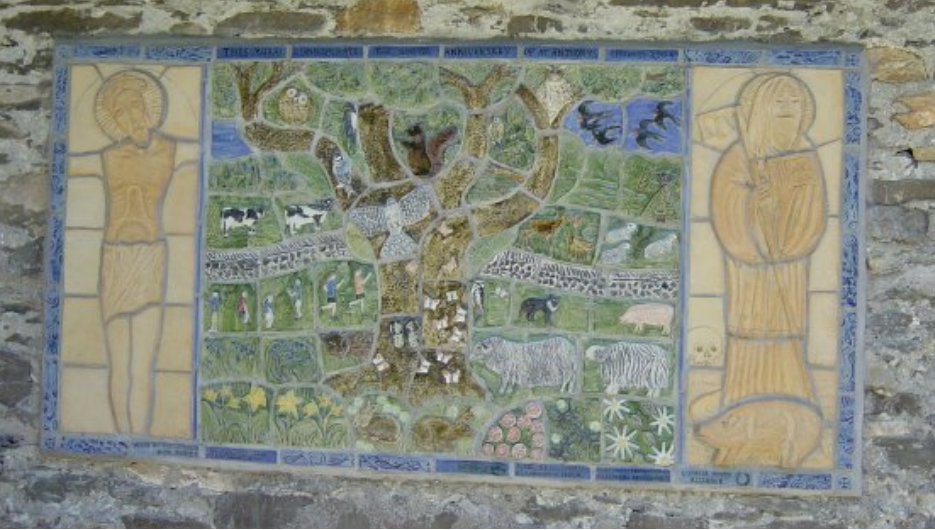
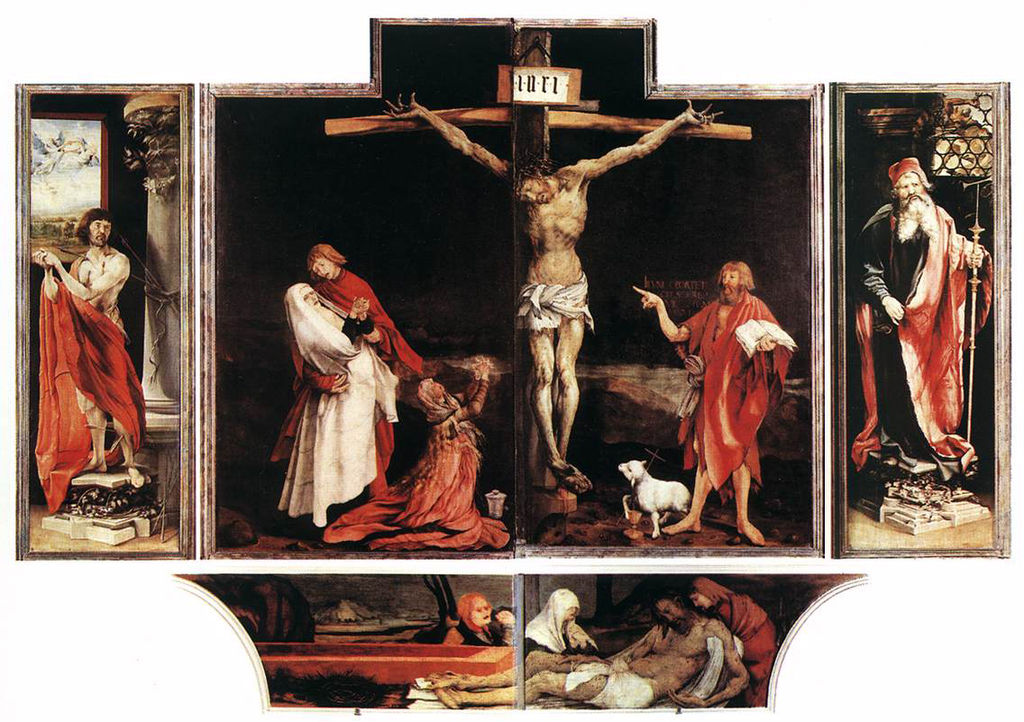
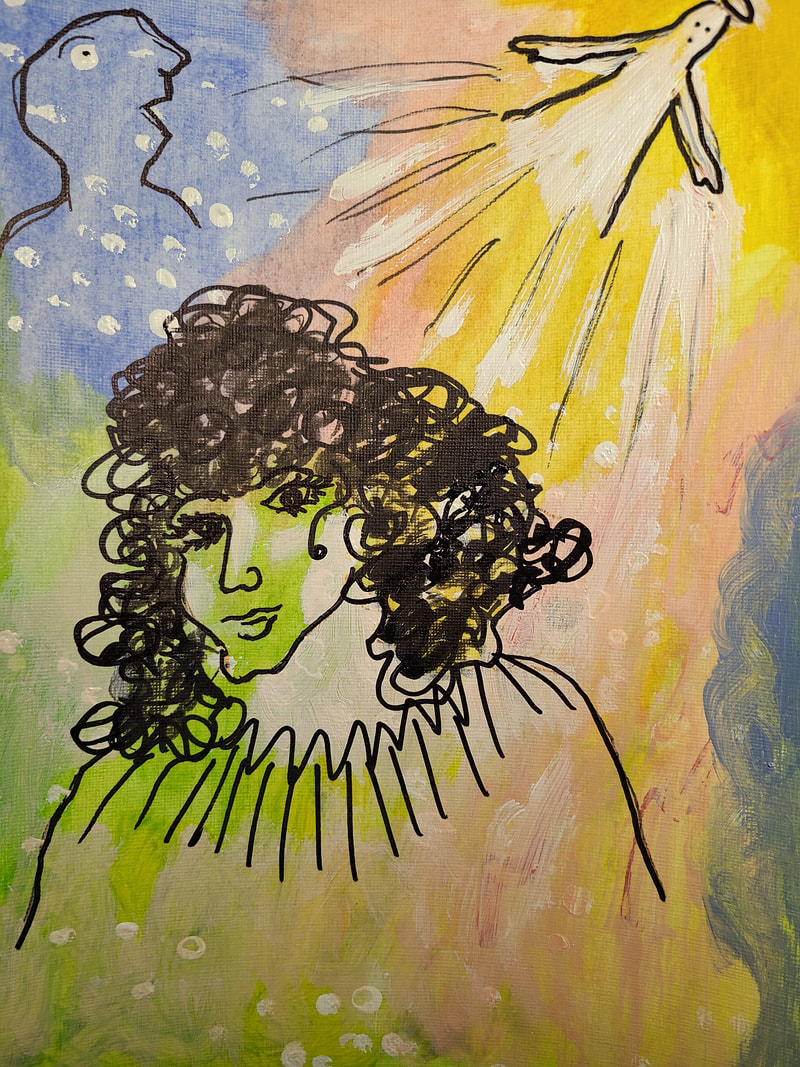
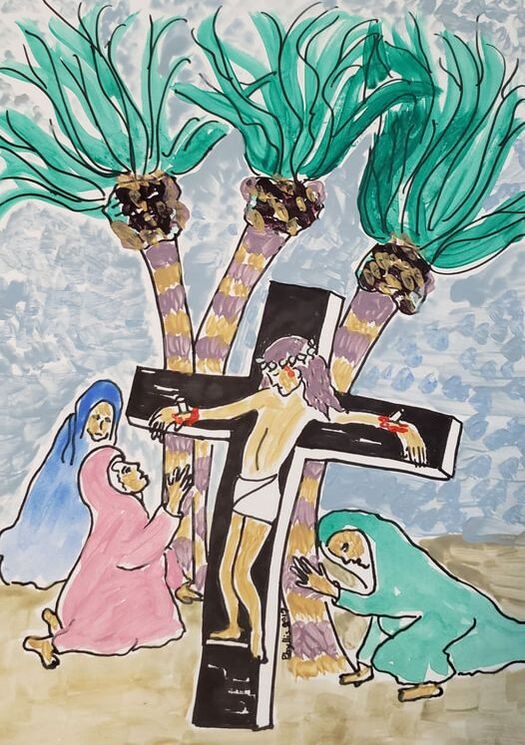
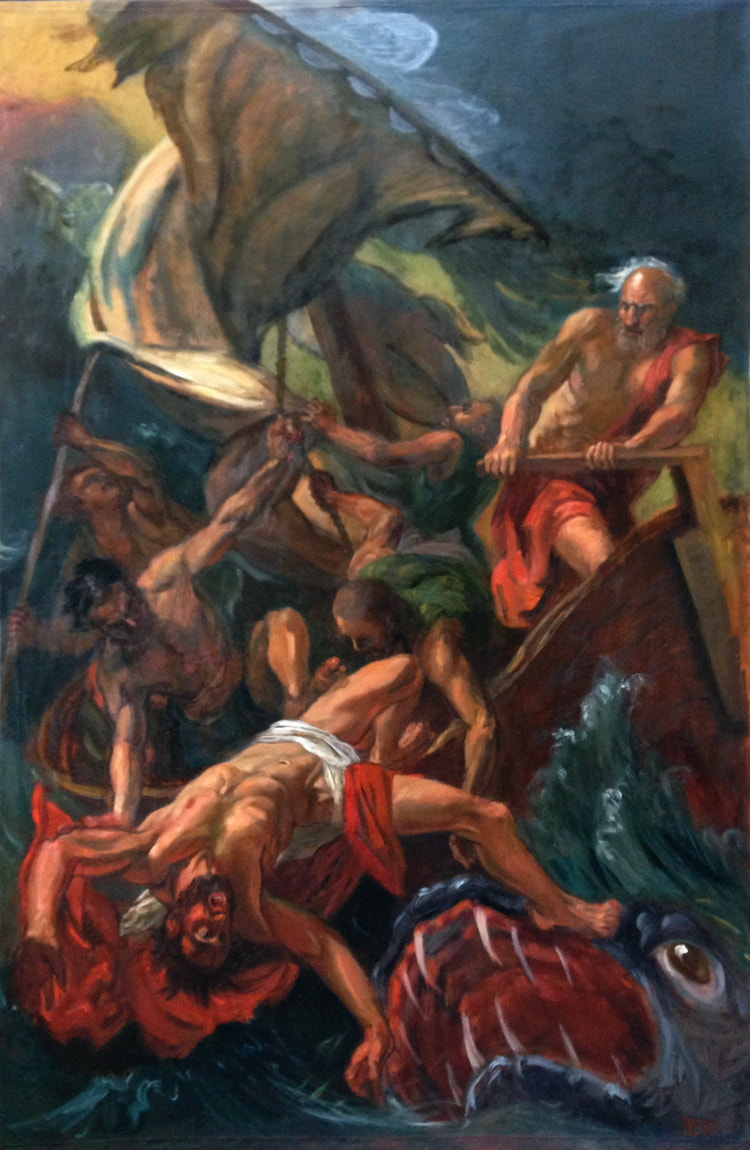
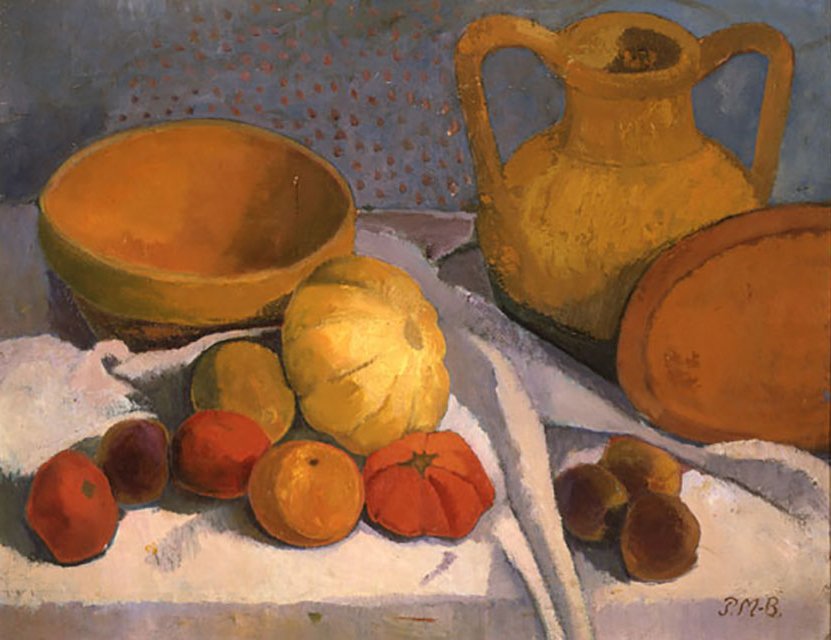
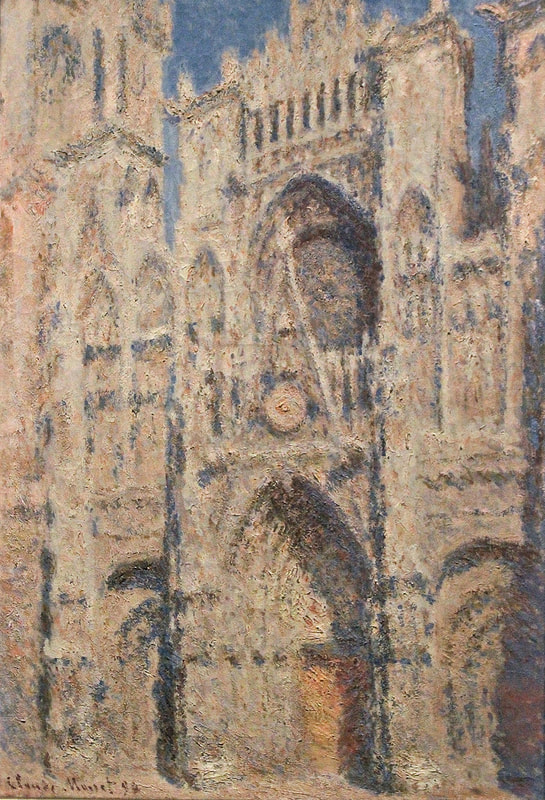
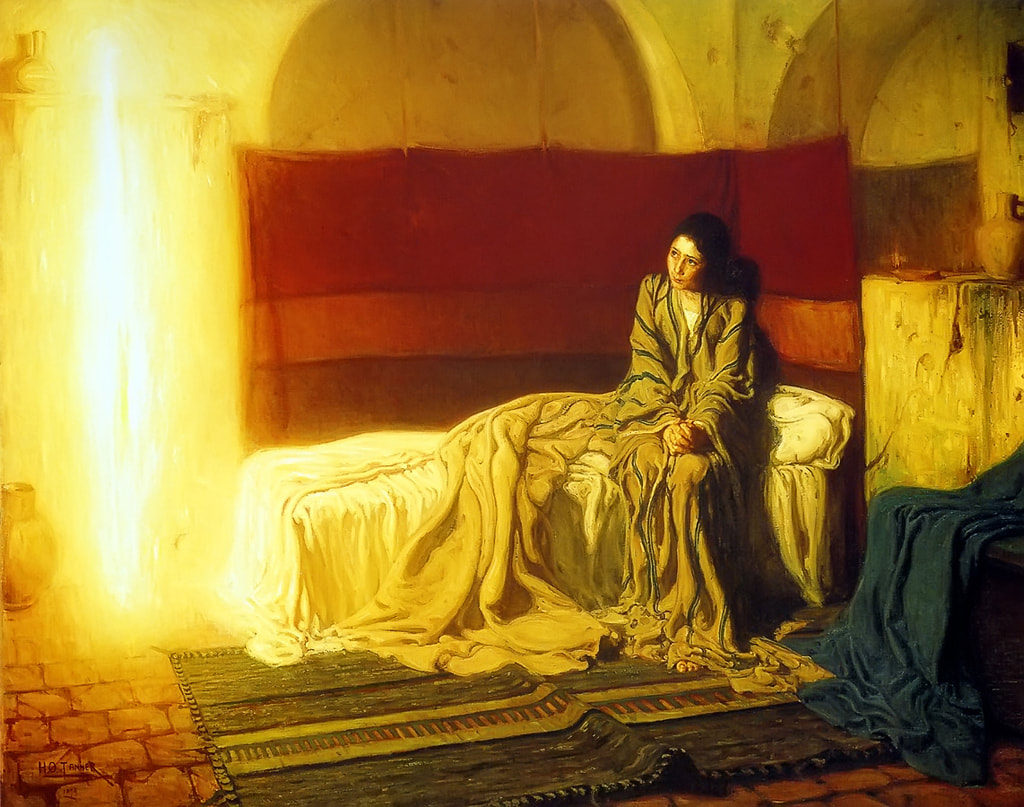
 RSS Feed
RSS Feed
